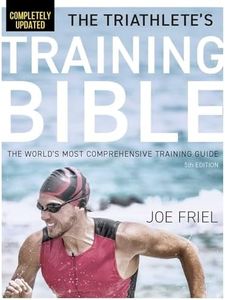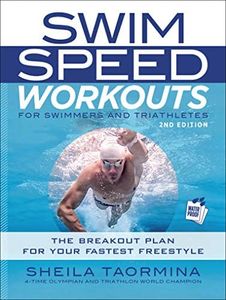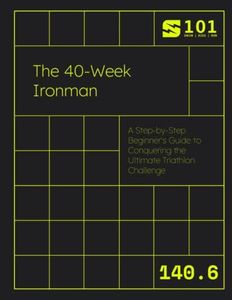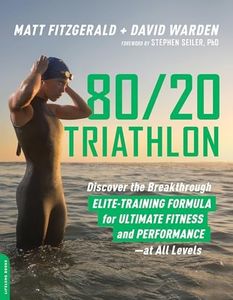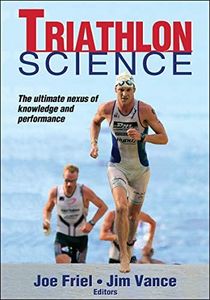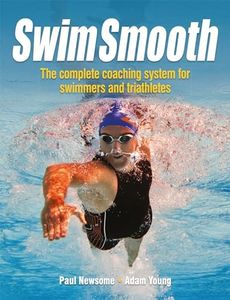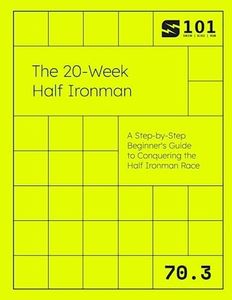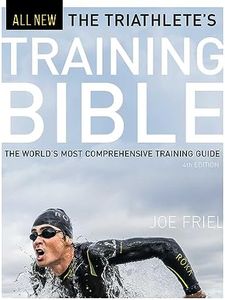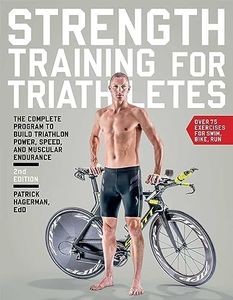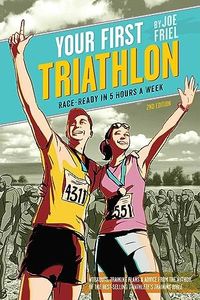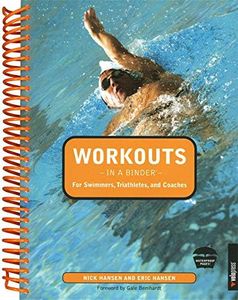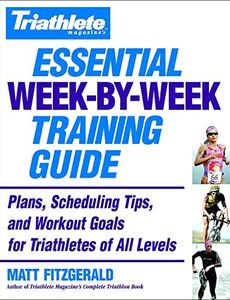10 Best Triathlon Books 2026 in the United States
Our technology thoroughly searches through the online shopping world, reviewing hundreds of sites. We then process and analyze this information, updating in real-time to bring you the latest top-rated products. This way, you always get the best and most current options available.

Our Top Picks
Winner
The Triathlete's Training Bible: The World's Most Comprehensive Training Guide, 5th Edition
Most important from
102 reviews
The Triathlete's Training Bible: The World's Most Comprehensive Training Guide, 5th Edition, authored by Joe Friel, is a well-regarded resource in the triathlon community. Joe Friel is a respected coach with decades of experience, lending credible expertise to the content. The book covers a range of essential topics for triathletes, including detailed training plans tailored to different levels of athletes, from beginners to advanced competitors. These plans are comprehensive and offer structured guidance to help readers reach their training goals effectively.
In addition to training plans, the book provides valuable nutrition advice, helping athletes optimize their diet for better performance and recovery. This section is thorough and offers practical tips that can be easily integrated into daily routines. Mental strategies are also addressed, which is crucial for triathletes who need to maintain focus and motivation throughout their training and races. The mental aspects discussed are insightful and can help athletes develop a stronger mindset.
The illustrations and diagrams included in the book are clear and helpful, making complex concepts easier to understand and apply. They enhance the readability and practical use of the guide. 'The Triathlete's Training Bible' is an excellent resource for dedicated triathletes seeking a thorough and expert-led guide to improve their performance. Its detailed training plans, nutrition advice, and mental strategies make it a valuable tool, though beginners might find its extensive content a bit complex to navigate at first.
Most important from
102 reviews
Swim Speed Workouts for Swimmers and Triathletes: The Breakout Plan for Your Fastest Freestyle (Swim Speed Series)
Most important from
45 reviews
Swim Speed Workouts for Swimmers and Triathletes: The Breakout Plan for Your Fastest Freestyle is a comprehensive guide aimed at improving freestyle swimming speed. Written by expert coach Sheila Taormina, the book benefits from her extensive experience as both an Olympic swimmer and a triathlon coach. This adds considerable weight to the author's expertise, making it a reliable resource for swimmers and triathletes alike.
The book includes detailed training plans designed to enhance swimming speed and efficiency, which is a significant plus for athletes looking to improve their performance. However, it lacks specific nutrition advice, which could be a drawback for those seeking a holistic training guide. Mental strategies are also not heavily emphasized, focusing more on technical and physical aspects of swimming. One of the book's strong points is its use of illustrations and diagrams that clearly demonstrate techniques and drills, making it easier for users to follow along and understand the exercises.
This book is highly suitable for swimmers and triathletes focused primarily on improving their freestyle technique and speed but might not fully meet the needs of those seeking a more rounded approach including diet and mental preparation.
Most important from
45 reviews
The 40-Week Ironman: A Step-by-Step Beginner's Guide to Conquering the Ultimate Triathlon Challenge (Swim Bike Run 101 | Triathlon Training Field Guides)
Most important from
24 reviews
The 40-Week Ironman: A Step-by-Step Beginner's Guide to Conquering the Ultimate Triathlon Challenge is tailored for beginners aiming to complete an Ironman triathlon. The book is authored by someone with expertise in triathlon training, providing readers with structured training plans spread over 40 weeks. These plans offer a gradual build-up to the intense physical demands of an Ironman, making it suitable for those who are new to the sport.
Nutrition advice is included, helping readers understand the importance of fueling their bodies properly throughout the training and on race day. Mental strategies are another strength, offering tips to stay motivated and focused during the long preparation period and the event itself. The inclusion of illustrations and diagrams aids in visualizing techniques and exercises, enhancing the reader's understanding.
Despite some limitations, those new to triathlons and looking for a structured, easy-to-follow guide might find this book beneficial.
